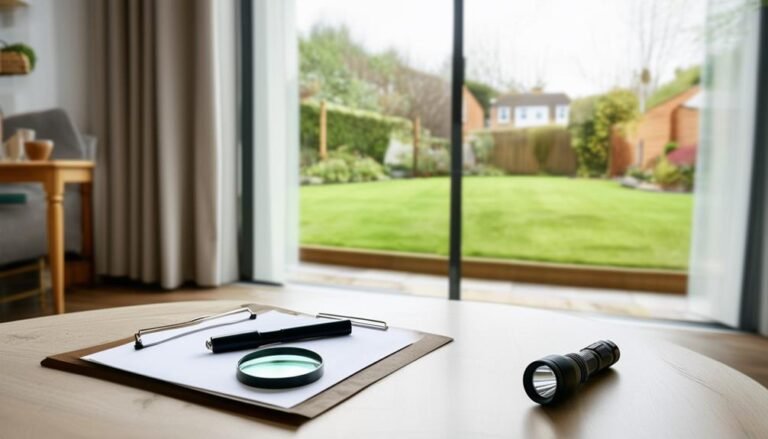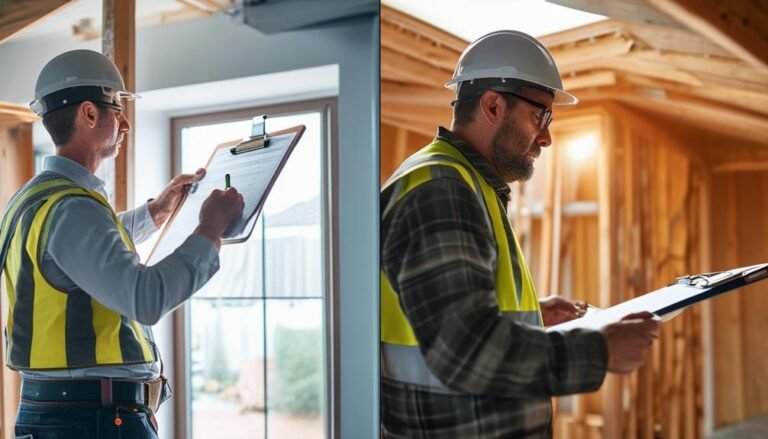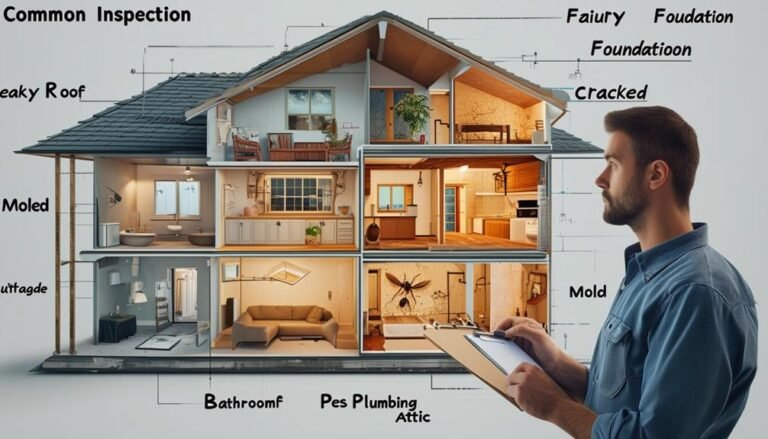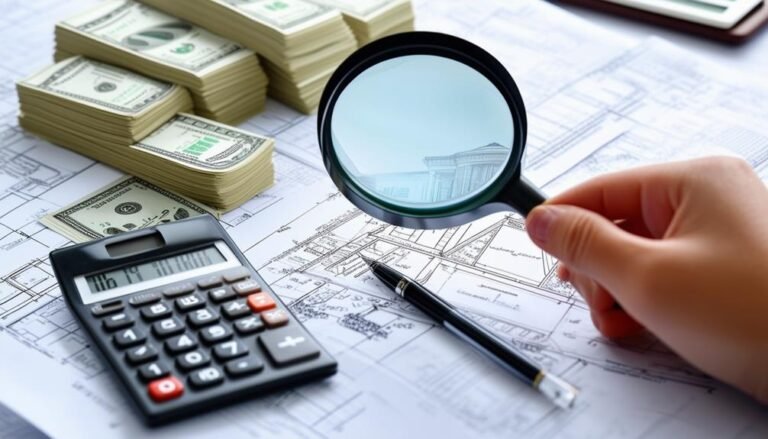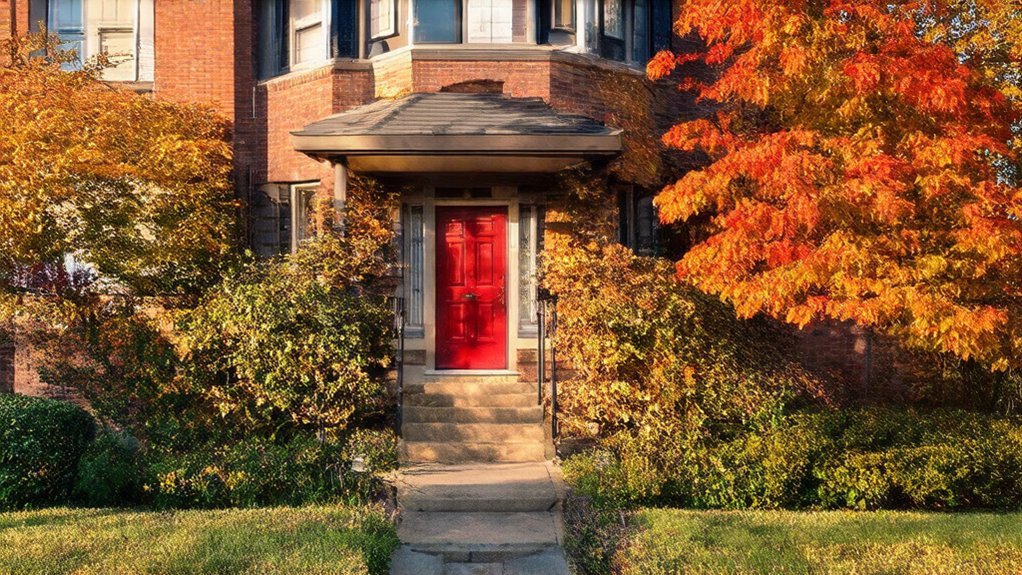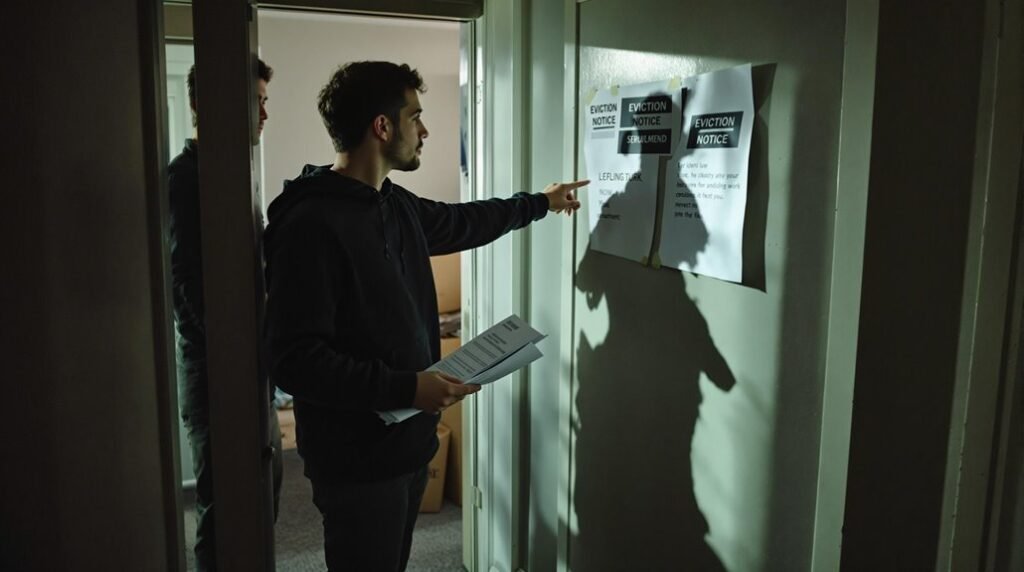When you’re buying your first home, a home inspection is like having a knowledgeable friend who doesn’t sugarcoat things. It’ll uncover those hidden issues, like leaky roofs or faulty wiring, that could cost you big bucks later. Imagine moving in and discovering foundation cracks—yikes! Scheduling an inspection right after your offer helps you avoid nasty surprises and even gives you leverage to negotiate with the seller for repairs or price adjustments. Plus, a detailed report breaks down problems into manageable categories, making decisions easier. Stick around, and you’ll see how to turn that inspection into your secret weapon.
Purpose of Home Inspection
When you get a home inspection, you’ll gain essential insights into the property’s condition, helping you make a well-informed decision. This step is especially important for first-time buyers. Imagine moving into your dream home only to discover that the roof leaks or the electrical system is outdated. A home inspection helps you avoid those unwelcome surprises by focusing on major defects that could cost a fortune to fix.
The inspector will check critical elements like the foundation, roof, plumbing, and electrical systems, looking for serious issues. They won’t sweat the small stuff like minor cosmetic flaws, which aren’t going to break the bank. Think of it as a health check-up but for a house.
This thorough examination allows you to negotiate with the seller. If the inspector finds significant problems, you can ask the seller to make repairs or lower the price. It’s like having a safety net that protects your investment and guarantees the property is safe to live in.
Scheduling a Home Inspection
After understanding the importance of a home inspection, the next step is to schedule one as soon as your offer is made. Ideally, you’ll want to schedule it even before the offer date, especially in today’s competitive market. This allows you to make timely decisions and not miss out on a great property because of delays.
Most home inspectors are pretty flexible and usually just need a 24-hour notice. This is perfect for those last-minute schedule changes. The whole inspection typically takes between 2 to 4 hours, depending on the size and the condition of the property. Trust me, these hours are well spent; they’ll give you a thorough snapshot of the home’s health.
Key Inspection Components
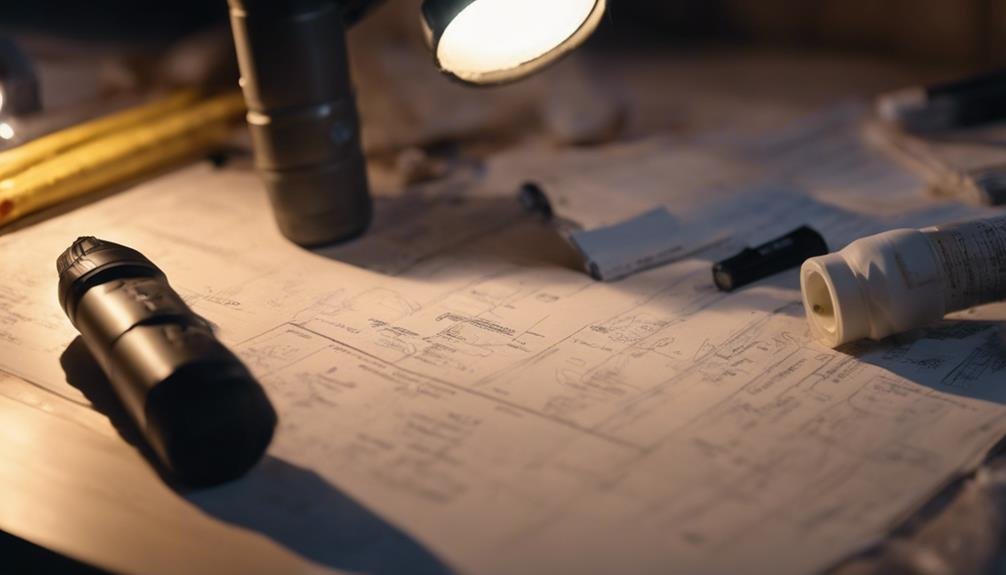
Understanding the key components of a home inspection can help you better appreciate its value and importance. Imagine you’re super excited about your new potential home. But wait, have you checked if its foundation is sturdy? Inspectors will dive deep, ensuring the foundation is solid, so you don’t worry about any unexpected sinking issues.
Let’s talk plumbing! No one wants surprise waterfalls in their living room. Inspectors carefully check the plumbing systems, hunting down leaks and any sneaky problems that could drain your wallet on repairs.
When it comes to staying cozy, the heating, ventilation, and air conditioning (HVAC) system can’t be overlooked. Inspectors make sure it’s all in good shape and meets safety requirements, preventing you from shivering in winter or sweating in summer.
Electrical systems? Those are serious business. Inspectors scrutinize them for safety and compliance, looking out for any outdated wiring or overloaded circuits that could be hazardous.
Don’t forget the home’s exterior and interior, including roofs, walls, windows, and doors. Inspectors assess their condition, identifying any maintenance needs, so your dream home doesn’t turn into a DIY nightmare. It’s all about making sure you’re stepping into a safe, comfortable haven.
Common Findings
Common findings in home inspections often point to issues that could turn your dream home into a costly fixer-upper if not addressed promptly. For example, roof damage is a biggie. Missing shingles or leaks can lead to pricey repairs down the line. Imagine finding out after a rainy week that you’ve got water dripping from the ceiling—not fun, right?
Water damage is another frequent culprit. You might spot water stains or signs of mold, which could mean plumbing leaks or poor drainage. It’s kind of like the house crying for help. Electrical issues come up a lot too. Outdated wiring or improper grounding are not just minor annoyances—they’re potential fire hazards and could mean your electrical system isn’t up to code.
Let’s talk about HVAC systems. If heating or cooling isn’t working efficiently, it could mean your dream home won’t be cozy in the winter or comfy in the summer. Finally, foundation problems like cracks are critical. They can mess with the house’s structural integrity, and fixing them isn’t cheap.
Choosing a Home Inspector
Selecting the right home inspector can make a huge difference in your home-buying experience. Start by doing your homework—check their experience, qualifications, and whether they’re part of professional organizations. These memberships often signal that they meet industry standards. Don’t skip reading online reviews, and definitely ask for recommendations from your realtor or friends who’ve been through the process. You’ll want someone reliable, so hearing about others’ experiences is invaluable.
Even though inspectors in Toronto don’t need a license, going with a licensed one might give you peace of mind. It shows they’re serious about their trade and likely more trustworthy. Ask for sample inspection reports too. You want to see how detailed and clear their assessments are before you hire them. A vague report won’t help you spot potential issues in your new home.
Timing’s also key. In hot real estate markets, having an inspector who’s flexible and available when you need them can save you a lot of stress. You don’t want to miss out on your dream home because you couldn’t get an inspection done in time. So, take your time choosing—it’s worth it!
Legal Considerations
After you’ve chosen the right home inspector, it’s important to be aware of the legal considerations that come with the inspection process. First off, home inspectors in Toronto may ask you to sign a waiver to limit their liability. But don’t worry, this doesn’t let them off the hook if they miss major issues due to negligence. If they overlook significant defects, they’re still accountable.
Be aware, though, that standard inspections don’t usually cover environmental hazards like mold or asbestos. If you’re concerned about these, you might need a specialist. It might seem like an extra step, but it’s worth the peace of mind.
Also, if your inspection uncovers serious problems, you have the right to back out of the purchase without any penalties, provided your sale is contingent on inspection results. This can save you from a financial and emotional disaster.
Negotiating repairs can be a bit tricky, so having legal counsel can really help. It’s not just about getting the repairs done; you need to understand who’s liable if something goes wrong later.
Legal knowledge isn’t just for lawyers; it’s essential for you as a first-time homebuyer. So, stay informed, and don’t hesitate to ask questions!
Understanding Reports
A home inspection report gives you a thorough snapshot of the property’s current condition, helping you make informed decisions. You’ll find a summary of all the findings, which lists issues identified by the inspector and recommendations for necessary repairs. It helps you understand what you’re getting into, especially if you’re a first-time buyer.
These reports come with photographs of tricky spots like the roof or foundation—areas you can’t easily see during a walk-through. Imagine discovering a hidden issue that could cost you thousands to fix; those photos could be lifesavers!
Typically, a home inspection lasts between 2 to 4 hours, with the final report landing in your inbox within 24 to 48 hours. This timeline is great because it means you can make quick, informed decisions without feeling rushed.
The reports also categorize problems as minor, moderate, or major, helping you prioritize what needs to be fixed right away. No one wants a money pit, right?
Post-Inspection Actions
Once you’ve reviewed your home inspection report, it’s time to take actionable steps based on the findings. First, figure out if there are any major defects or necessary repairs that could impact your purchasing decision. Those cracks in the foundation, the leaky roof, or the outdated electrical system are your red flags.
Use the inspection findings as your bargaining chip. You can either request the seller to make the repairs or ask for a price reduction to cover the costs you’ll incur. Think of it like haggling at a flea market, but with higher stakes and not as much fun.
If the report reveals some serious issues, you might want to think about walking away. Don’t let the excitement of buying your first home blind you to potential financial pitfalls. Trust me, that dream home can quickly morph into a money pit.
For those major concerns—like mold or structural problems—it’s wise to consult specialists for further evaluation. You wouldn’t take medical advice from a plumber, right?
Lastly, reflect on how the findings affect your home insurance. Some insurers might need proof that repairs are done before giving you a policy. Better safe than sorry, right?
Conclusion
In summary, getting a home inspection is like having Sherlock Holmes investigate your future nest—it’s essential! By scheduling an inspection and understanding the report, you’re protecting yourself from unwelcome surprises. Choose a reliable inspector, and you’ll uncover potential issues before they become your mystery to solve. Don’t skip this important step; it’ll save you headaches down the road and guarantee your first home purchase is a joy, not a tale of woe.



